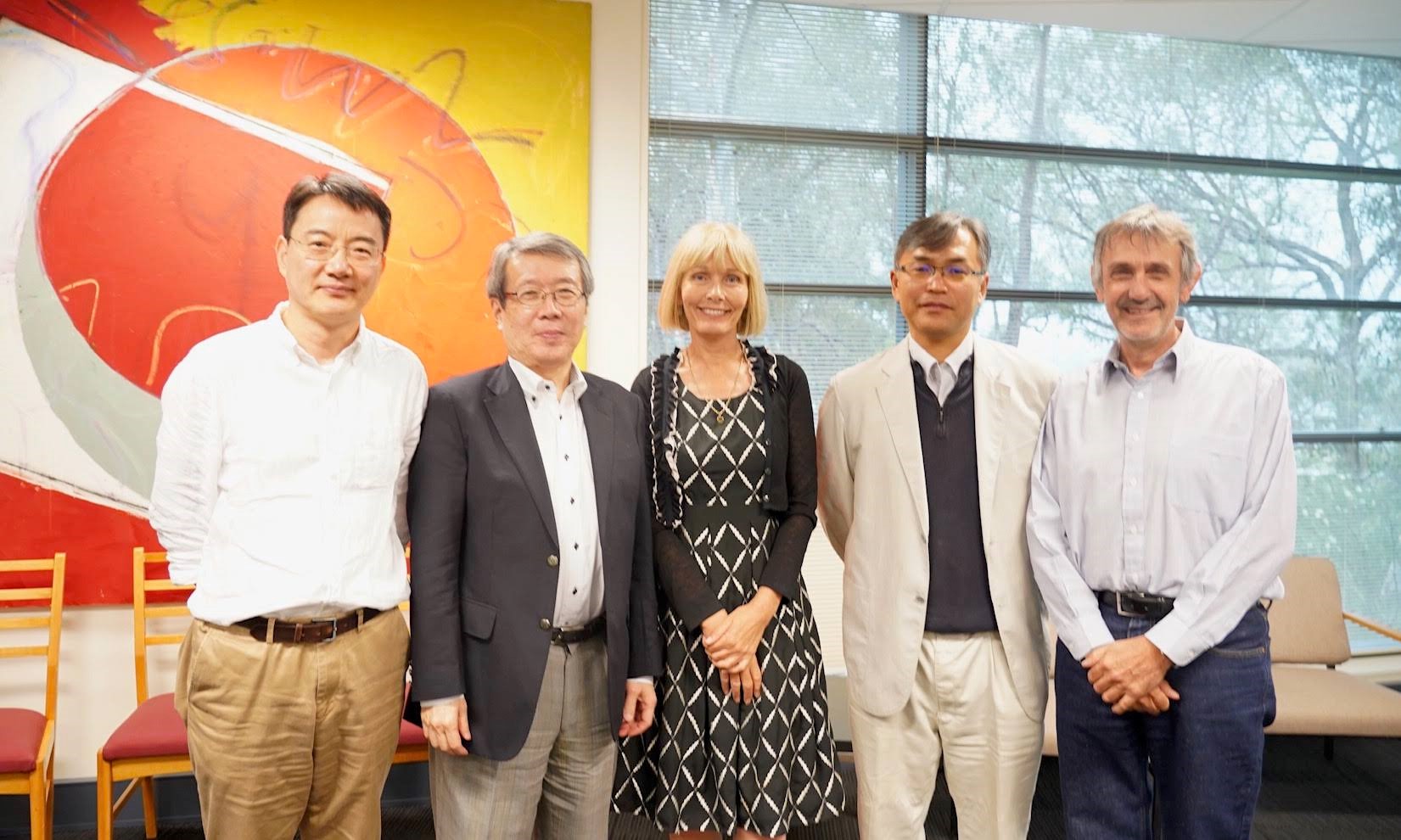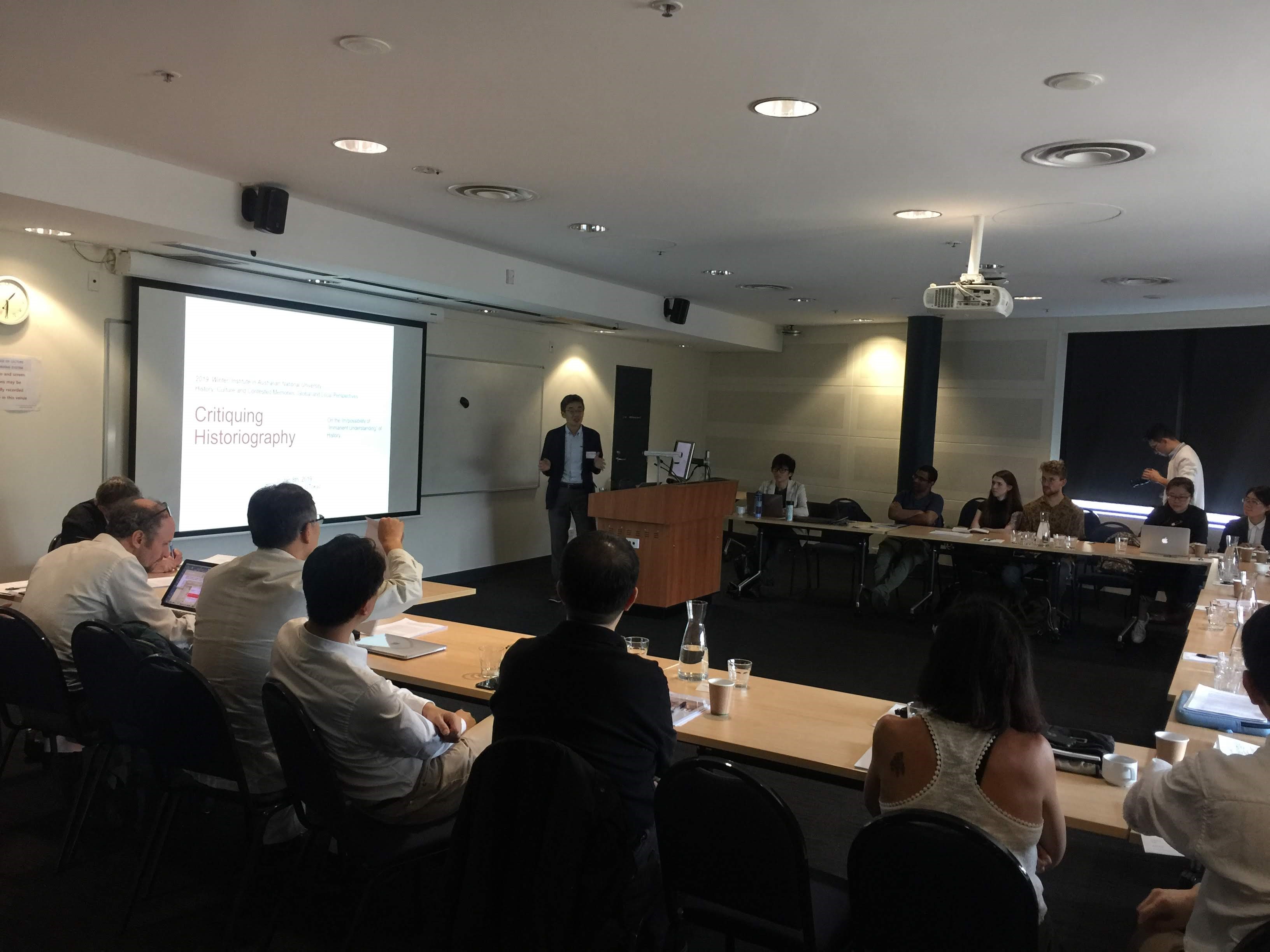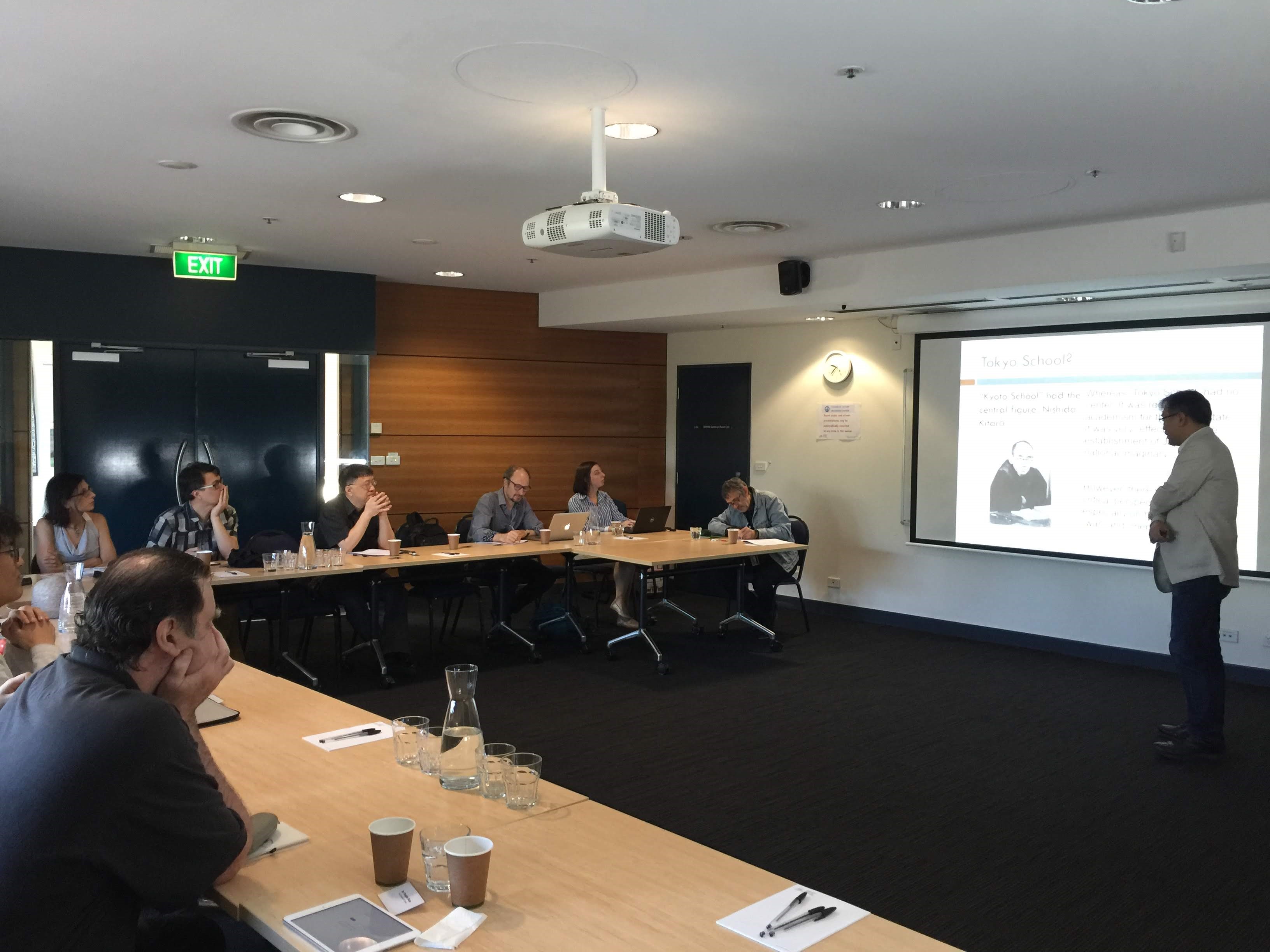【Report】 ANU-PKU-UTokyo Winter Institute 2019 (4)
Participating in the 2019 Winter Institute(WI) held at Australia National University (ANU) in Canberra from January 7 to 11 was a great opportunity as well as such an inspiration in terms of exchanging thoughts and ideas on the theme titled “History, Culture and Contested Memories: Global and Local Perspectives,” which has grown crucial in recent years, among wonderful students and scholars from ANU, Peking University, New York University, and the University of Tokyo.
Personally, I should admit that it was not off to an exciting beginning due to the fact that I had suffered with a bad cold. However, when I arrived in Canberra, met with excellent students and scholars, and as I got exposed to participants’ academic zeal for the given theme, needless to say along with a very good weather --- we were very fortunate about it indeed, not very hot in the midst of summer while extremely hot temperature had been reported before we arrived---, I was getting better physically and got immersed in thought-stimulating lectures and presentations --- I am still not sure which happened first, feeling better and then started to get immersed, or vise versa. Anyhow, my first visit to Canberra finally geared up.

The 2019 WI opened up with a lecture with Professor Haneda, bringing up an overarching question and a concept “world history” in the era of globalization, a new approach to history and an attempt to lower threshold for nation-states to write their own history, particularly based on historical revisionism for political populism and isolation, nativists movements, etc. as we have currently witnessed. Following sessions elaborated the theme further: Prof. Zhang suggested geopolitical mapping and cultural politics in the global age, through China’ case, based upon the contention of Carl Schmitt’s 1942 Land and Sea; Dr. Broinowski from ANU introduced the interconnected discussion between physical science on nuclearity and livelihood of mankind and history, taught by Fukushima accident; Prof. Zou deepened the discussion of world history viewed in light of Tian Han’s Guan Hanqing; as a final presenter of the day, Dr. Williams explained competing interpretation of the past between the EU and Eastern Europe, when stoked up by nationalism, seeking a new approach on how memory can be understood both in local and transnational perspectives. All these speeches on the first day reminded me of how pleasant it is to have an interdisciplinary dialogue with people from various academic backgrounds.
We continued to have intriguing discussions on the following sessions; particularly the debate on historical consciousness through time and space --- for us, in the past as well as the present in Australia, China, and Japan --- with a variety of methodological analytic tools was quite impressive for me. First, regarding how Australian people see which historic events have impact on the country, Prof. Bongiorno and Mr. Pennay used the survey data and showed the glimpse of a shared sense of history, such as 911 attack, affecting ordinary Australian people’s historical consciousness, while assuring the difference of it among generation, gender, party affiliation. Then, as for China’s approach to history, presenters brought fresh perspectives: Prof. Zhang analyzed the 1911 Revolution by putting it in a broader context, the Vienna System, more specifically, the network of treaties and the banking consortium; Prof. Ishii provided early Japanese intellectuals’ perspectives on Chinese history, introducing Masubuchi Tatsuo’s strong criticism against Chinese historiography by Naito Konan, concerning the possibility of “immanent understanding” of history.

Lastly, as for Japanese view on history, Prof. Nakajima probed historical consciousness in “Tokyo School,” while many are more familiar with “Kyoto School,” in the way in which two eminent thinkers, Maruyama Masao and Takeuchi Yoshimi, see the war and situate themselves in a postwar period by criticizing an early debate led by Kobayashi Hideo. And as a contemporary version of these debates, I had an opportunity to introduce my argument on actors who drive historical revisionism in Japan by weighing more on conservative movements, as compared to its interaction with politicians, when “politicians become historians.” Ultimately, all these discussions had brought us to the question of “power” and “empire” as a global history; Dr. Biccum aptly raised this issue, drawing on a recent controversy over an article “The Case for Colonialism” in Third World Quarterly, which bluntly claimed that “western colonialism was not all a bad thing,” and she attempted to take a political theoretical approach to empire studies, which is expected to provide universal validity to the field.

In addition to these, not to mention there were other important and fascinating topics discussed: Chinese literature (by Dr. Foley), South Africa’s fertility transition (by Dr. Mariotti), and rural women’s inside work in modern China (by Prof. Jacka). Though I could not catch many and more details on these topics due to my lack of reaching-out, being there and listening to presentations in itself surely enriched my understanding of them.
Last but not least, student sessions were a blast and a good fit for finale of the 2019 WI. East student participant from ANU, NYC, PKU, and UTokyo were well prepared and delivered thought-stimulating presentations in each field. It is noteworthy to leave each title here: evaluation of violence in the Bakumatsu (Mr. Liu, UTokyo), China under the foreign lens in the 1970s (Mr. Pu, PKU), the politics of policing dissent in Pakistani higher education (Ms. Adawy, ANU), ‘rice’ by Su Tong as Chinese Bildungstoman (Ms. Watson, NYU), the case of Rohitha Munasinghe: a micro-history of a victim of state terrorism and his narrative(s) of trauma (Mr. Perera, ANU), writing beyond borders: Teju Cole’s writing and its message (Ms. Dong, PKU), from Germany to China: paths, driving forces and perspectives of industrial heritage management (Ms. Zhang, ANU), constructing the past: contemporary Taiwanese identity in archaeological practices (Mr. Chuang, UTokyo), and May-Fourth diary novel and the formation of literary publicity (1917-1927) (Ms. Fan, PKU), myopic histories and AI’s culture of hypebole (Mr. Browne, ANU), “to be or not to be”: from utopia to heterotopia in Liu Cixin’s The Three-Body Problem (Ms. Huang, PKU), and martyrs for democracy? The memory of ‘Peterloo Massacre’ in past and present (Mr. Konishi, UTokyo). As you might notice, we changed the initial schedule; the session extended to over one and half an hour, reflecting full of excitement to discuss.
Bringing all together, indeed, joining the 2019 WI was a precious experience for me. Not only fruitful discussion but also hospitality and friendship that participants showed will be cherished for a long time. Lastly, I would like to express my gratitude to Prof. Nakajima and Prof. Ishii for giving me such an incomparable opportunity, additionally, to Mr. Sheldon Liu, Mr. Chia-Li Chuang, and Mr. Masahiro Konishi for putting up with a sick TA, which is me, and a wonderful fellowship during the stay, lastly those who put countless efforts for the event to take place: especially to Prof. Paul Pickering and Ms. Morgan Lael.
By Yoojin Koo (Project Research Fellow, IHS)






